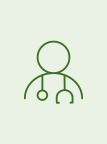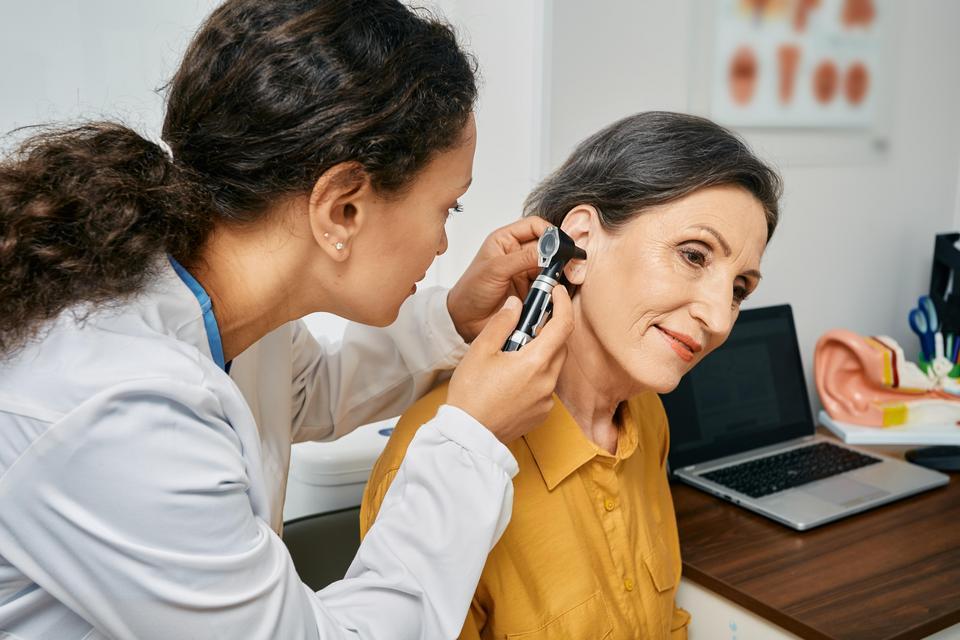Diabetes is a condition affecting your body’s ability to process food and turn it into energy. Normally, your body breaks food down into glucose. This glucose travels through your bloodstream and is taken into the cells of your body for energy. In order to take the glucose out of your blood, your cells need a hormone called insulin. Diabetes is a problem with your body’s production or use of insulin. The condition is serious, but it is manageable with treatment.
There are several different types of diabetes, and each requires a unique approach to treatment. At Altru’s Diabetes Center, we offer comprehensive treatment for all types of diabetes. Our physicians, nurse practitioners, licensed registered dietitians and certified diabetes educators work as a team to bring lifestyle, medications and current technology, including insulin pumps and continuous glucose monitoring, together to customize diabetes plans for children, adolescents and adults.
Types of Diabetes
There are three main types of diabetes: type 1 diabetes, type 2 diabetes and gestational diabetes. All involve a dysfunction of the body’s ability to produce or use insulin, resulting in an inability to process and use glucose. Glucose is the energy of the cells, and without it, none of the cells in your body can function.
Type 1 Diabetes
Type 1 diabetes is an autoimmune disease. It occurs when the body destroys a type of cells in the pancreas, called beta cells, that produce insulin. Without beta cells, the body cannot produce any insulin. People with type 1 diabetes must take artificial insulin every day so their cells can use glucose.
Type 2 Diabetes
Type 2 diabetes can be caused by obesity resulting in abnormally high blood sugar. When your blood sugar is consistently too high, the cells in your body can become resistant to insulin. This means that the insulin becomes less effective, and your cells are less able to take up glucose from the blood. In the early stages, type 2 diabetes can be controlled with lifestyle changes and oral medications, but eventually, many people with type 2 diabetes will need to take insulin.
Prediabetes
Although it’s not a type of diabetes, prediabetes is often a precursor to type 2 diabetes.
People with prediabetes have blood glucose (blood sugar) levels that are higher than normal, but not high enough to be diagnosed with type 2 diabetes. These individuals are more likely to develop type 2 diabetes, heart disease and stroke.
By taking steps to prevent type 2 diabetes, you also lower your risk for possible complications of diabetes such as heart disease, stroke, kidney disease, blindness, nerve damage and other health problems.
Gestational Diabetes
Gestational Diabetes is a type of diabetes that develops during pregnancy. In some women, insulin resistance increases during pregnancy, and your blood sugar becomes too high. It can usually be treated with dietary management, and it usually resolves after pregnancy. However, it’s important to monitor it closely, because uncontrolled gestational diabetes can cause your baby to be overly large at birth, making delivery more dangerous. Women who have had gestational diabetes have a higher risk of developing type 2 diabetes later in life, so a healthy diet, exercise and weight management are important preventative steps.
Diabetes Risk Factors
Type 1 diabetes is genetic, but many factors increase your risk for prediabetes or diabetes type 2. These include:
- 45 years of age or older
- Overweight
- Parent with diabetes
- Sister or brother with diabetes
- Family background that is African American, Hispanic/Latino, American Indian, Asian American or Pacific Islander
- Had diabetes when pregnant (gestational diabetes), or gave birth to a baby weighing nine pounds or more
- Participate in physical activity less than three times a week
If any of these apply to you, you may be at risk for developing diabetes. Changing diet and exercise helps to prevent type 2 diabetes, and Altru's Weight Management Program helps patients learn healthy lifestyle habits.
Visit with your healthcare provider for ways to reduce your risk of developing diabetes or any related conditions. You may also be a candidate for the National Diabetes Prevention Program. To find open classes in your area, click here.
Diabetes Programs at Altru
In addition to diabetes management with insulin and oral medications, we offer many lifestyle and educational programs to help you reduce your risk of diabetes and learn to manage your disease.
Diabetes Self-Management Education
Diabetes Self-Management Education is a class for people with type 1 or type 2 diabetes. This program includes a complete review of diabetes pathophysiology and the day-to-day management of the disease, including how to monitor your blood glucose. This course is taught by a diabetes nurse educator.
If you have diabetes, we recommend that you take our Diabetes Self-Management Education at least once a year. Medicare covers Diabetes Self-Management Education for 10 hours the first year and 2 hours each year thereafter. Individual visits are recommended for all Type 1 patients and for follow-up education for Type 2 patients.
Diabetes Basics Class
Our Diabetes Basics classes are for people who have been recently diagnosed with type 2 diabetes and are not taking insulin. This class is a three part series (1.5 hours each).
Classes are taught by certified diabetes nurse educators and registered dietitians.
To register you will need a referral from your primary healthcare provider. This class is covered by most insurance companies and is required by Medicare. If you have questions about whether your insurance will cover this class, please call your insurance provider.
Nutrition Therapy
Good nutrition and healthy eating is essential for managing all types of diabetes. Our dietitians provide medical nutrition therapy, including a thorough assessment of your lifestyle and food history and education about evidence-based nutrition therapy. Your dietitian will work with you individually to create a meal plan that fits into your lifestyle.
Financial Assistance for Diabetes Treatment
We offer financial assistance for patients who are diagnosed with prediabetes, gestational diabetes, type 1 diabetes and type 2 diabetes and who meet financial eligibility criteria.
Financial assistance may be used for:
- Clinical visits with provider, diabetic nurse educator or dietitian
- Prescription medications
- Travel to/from Altru
To find out if you are eligible, complete the financial assistance application and email to diabetescenter@altru.org, Altru’s Diabetes Center Coordinator. Applications can also be mailed to:
Altru Health System, Diabetes Center
PO Box 6003
Grand Forks, ND 58206
You will receive a reply to your financial assistance request within two weeks. Learn more about financial assistance programs at Altru.
Call 701.732.7620 to learn more about our diabetes programs. You will need a referral from your primary care provider to schedule an appointment with the Diabetes Center.













